Contributors
Editors
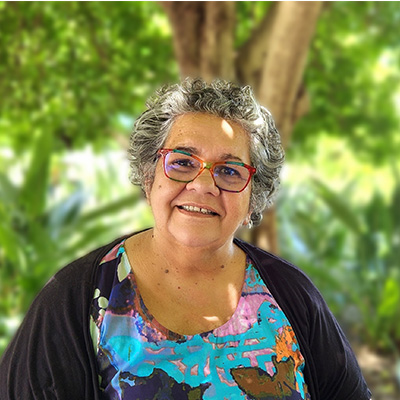
name: Tracey Bunda
institution: Indigenous Engagement Division, The University of Queensland
Tracey Bunda, co-editor of this Handbook, is a Ngugi/Wakka Wakka woman and grew up on the lands of the Jagera/Jugera/Yuggerapul peoples. She was awarded the 2024 Australian Awards for University Teaching (AAUT). Tracey is the Professor of Indigenous Education and has recently undertaken the role of Acting Deputy Vice-Chancellor (Indigenous Engagement) at The University of Queensland. During her extensive 4-decade career she has held senior Indigenous leadership roles in each of the universities in which she worked. Professor Bunda’s research interests are informed by critical theoretical approaches for understanding how race and power ideologically manifest. She is a chief investigator for ARC grants that investigate Indigenous Futures (Centre of Excellence); the Climate Child (SCU) and a UQ Linkage for Peer Parent and Family Advocacy in Australian Child Protection. Her most recent co-authored book with Louise Phillips is Storying Social Movements (2023) and she is the co- host, with Katelyn Barney, of the podcast series Indigenising Curriculum in Practice. Professor Bunda proudly mentors the next generation of young Aboriginal scholars and learners to embody excellence as an Ancestral tradition of cultural continuity.
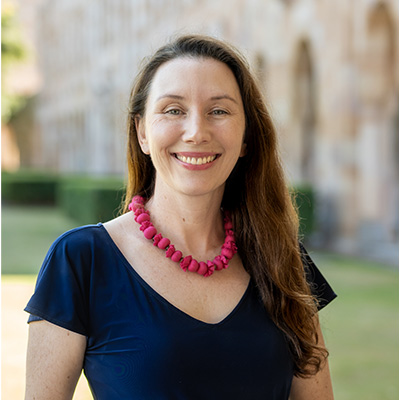
name: Katelyn Barney
institution: Aboriginal and Torres Strait Islander Studies Unit and School of Music, The University of Queensland
Katelyn Barney, co-editor of this Handbook, is an Associate Professor within the Aboriginal and Torres Strait Islander Studies Unit and affiliated with the School of Music at The University of Queensland. She is a non-Indigenous teaching and research academic and strong long-term relationships and partnerships with Indigenous people is at the centre of her work. She is a Senior Fellow of the Higher Education Academy (SFHEA) and a Principal Practitioner in the Institute for Teaching and Learning Innovation (ITaLI) at The University of Queensland. Katelyn co-leads a podcast series on teaching called Indigenising Curriculum in Practice with Professor Tracey Bunda. Her latest edited book Musical Collaboration between Indigenous and non-Indigenous People in Australia: Exchanges in the Third Space received the Ellen Koskoff Edited Volume Prize. Katelyn has previously held an Equity Fellowship with the Australian Centre for Student Equity and Success (formerly NCSEHE) and developed a range of resources on evaluating programs for Indigenous students. She is also an Australian Learning and Teaching Fellow and the Managing Editor of The Australian Journal of Indigenous Education.
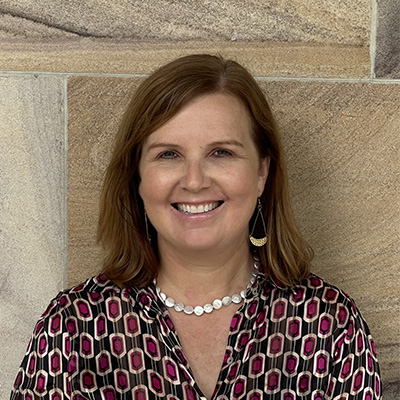
name: Levon Blue
institution: Aboriginal and Torres Strait Islander Studies Unit, The University of Queensland
Levon Blue, co-editor of this Handbook, is a member of Beausoleil First Nation in Canada and lives in Queensland, Australia. She is the Higher Degree Research (HDR) Coordinator at The University of Queensland in the Office of the Deputy-Vice-Chancellor Indigenous Engagement and coordinates courses within the Aboriginal and Torres Strait Islander Studies Major. Levon holds an affiliation with UQ’s School of Education and UQ’s Business School. Her PhD focused on financial literacy education practices in a First Nation community in Canada. Levon’s main research focuses on financial education (i.e. financial literacy education/financial capacity building/financial capabilities), specifically as experienced by Indigenous peoples in Canada and Australia including Indigenous young adults. She was drawn to this area of research due to the exploitative and predatory financial practices often targeting Indigenous peoples and the need to do something about it. Through her research, she has challenged mainstream understandings of financial education, adopting a critical lens to highlight the overriding deficit approach that has been followed. Levon also researches about pathways to success in higher education with Indigenous peoples and the vulnerabilities associated with cryptocurrency ownership.
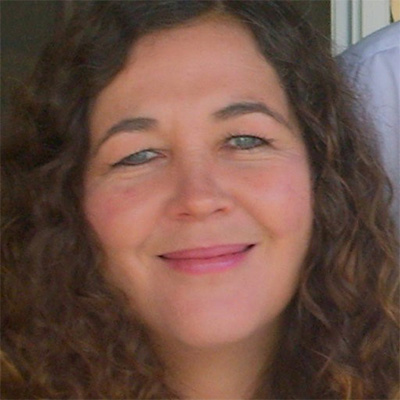
name: Laura Deane
institution: UniSA (Adelaide University) and The University of Queensland
Laura Deane, co-editor of this Handbook, is a non-Indigenous academic living on Kaurna Country (south of Adelaide). Laura is strongly committed to inclusive practice and educational justice, and teaches in Sociology and Education at UniSA, while working to deliver the Foundation Studies program at UniSA College. In a university career spanning more than two decades, Laura taught Aboriginal Studies for many years at both Flinders University and UniSA. She learned so much about what it means to be Australian through that work. She greatly respects the generosity of Aboriginal academics she has worked with who not only share their knowledge in the project of truth-telling, but who work tirelessly towards a settlement of the unfinished business between Indigenous and non-Indigenous Australia. In 2012, Laura received an OLT Citation—Australian Award for University Teaching as a member of the Yunggorendi Mande teaching team led by Professor Bunda at Flinders University. Her book, Australian Psychoses: Gender Madness and Colonial Paranoia in Australian Literature (2017, Lexington Books), was awarded the Flinders University Vice Chancellor’s Prize for Doctoral Thesis Excellence in 2014.
Contributors
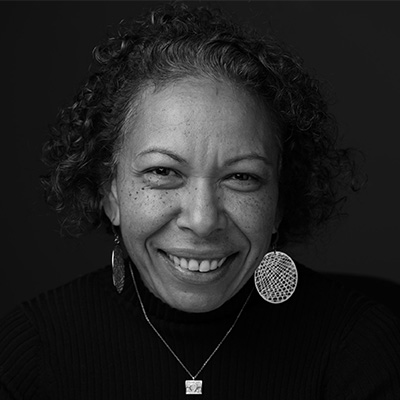
name: Lesley Acres
institution: UQ Library, The University of Queensland
Lesley Acres is a descendant of the Bidjara and Kairi tribes and Kodal clan, Mabuiag Island, Torres Strait Islands. Lesley joined UQ Library in 2022, and is Manager, Aboriginal and Torres Strait Islander Services and Collections. Lesley has worked in the library and information sector for 11 years and was a leader and educator in the Culturally Safe Libraries program that was rolled out by National and State Libraries Australasia (NSLA). Lesley has 32 years’ experience working at different levels of government in a wide range of Indigenous affairs.
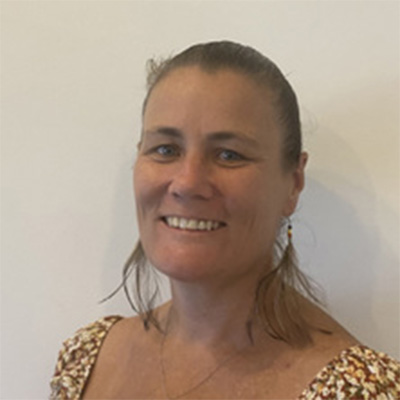
name: Danielle Armour
institution: School of Education, The University of Queensland
Danielle Amour is a Senior Lecturer in the School of Education at The University of Queensland. She has cultural links to Kamilaroi Country in Northern New South Wales through her paternal Grandmother. Danielle’s research area is in Aboriginal education, and she has been involved in longitudinal mathematical research projects. Her research explores the complexities of working between Indigenous and Western knowledge systems, particularly in education settings. Danielle has expertise in working with community to ensure culturally responsive pedagogies are included in the school setting. Through this work, Danielle has had the opportunity to co-design research projects with Elders and community members. Prior to undertaking a role within the university sector, Danielle worked as a teacher both within urban and very remote settings.
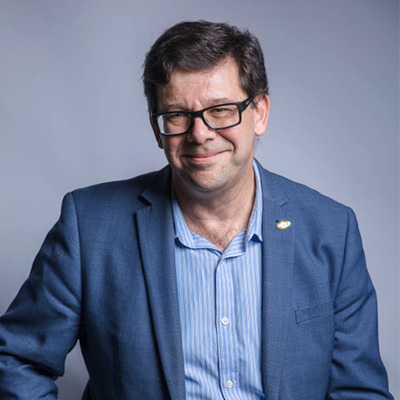
name: Micheal Axelsen
institution: UQ Business School, The University of Queensland
Micheal Axelsen is a Senior Lecturer (Business Information Systems) in the UQ Business School, and acts in the role of Deputy Director Teaching and Learning (Commerce). Micheal is an experienced (Information Systems) IS professional and accountant (FCPA of CPA Australia) with fifteen years’ experience in IS consulting with a focus on the evaluation of IS projects, IS audit and IT management and governance. Micheal’s research and teaching reflects these interests of data governance, digitalizing education, and developing professionals. Professionally, Micheal is a Fellow of CPA Australia and is a member of the Australian Computer Society, ISACA, and the Association of Information Systems.
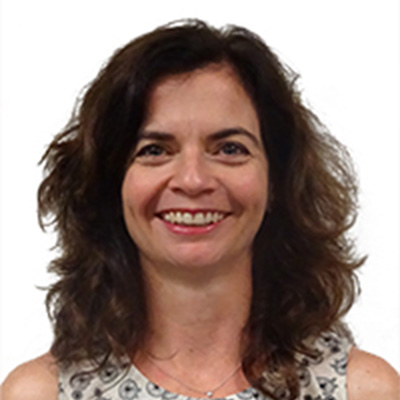
name: Lucy Behm
institution: UQ Library, The University of Queensland
Lucy Behm is a Manager in the Faculty Services Librarians team, UQ Library. Lucy grew up on the lands of the Wajuk peoples before moving to Kurrungul Country and Meanjin Country. She now lives on the lands of the Gubbi Gubbi and Ningi Ningi peoples. Lucy is committed to developing her cultural competency and ensuring the libraries of today and the future reflect Aboriginal and Torres Strait Islander knowledges and traditions.
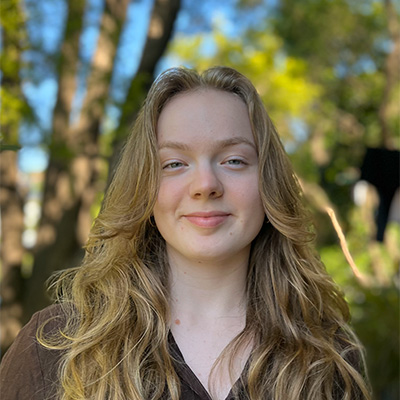
name: Kirsten Berkhout
institution: School of Historical and Philosophical Inquiry, The University of Queensland
Kirsten Berkhout is an undergraduate student, in the Bachelor of Advanced Humanities program at The University of Queensland. Kirsten spent her formative years on the lands of the Bindal and Wulgurukaba people, in Townsville, and the Muwinina people, in Lutruwita/Tasmania. She is lucky to have had the opportunity to listen to stories from Indigenous people growing up, that nurtured in her a deep appreciation for the importance of Indigenous knowledges in looking after Country and community. Now, living, working, and learning on the lands of the Jagera and Turrbal people, she is passionate about learning from the thousands of years researching, teaching, learning, and storytelling that has happened on these lands.
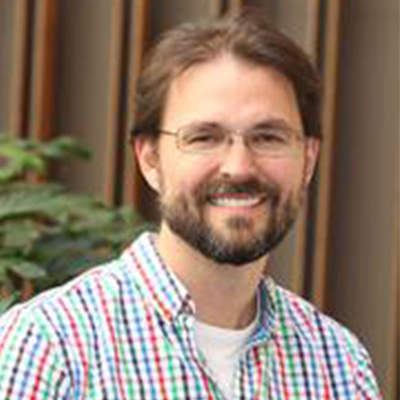
name: Mark Bremhorst
institution: UQ Business School, The University of Queensland
Mark Bremhorst teaches courses on data visualisation and information technology management at The University of Queensland. Mark’s research interests include system design and decision support systems. His research focuses on theories of cognition and how they can describe conceptual models that affect human-computer interaction.
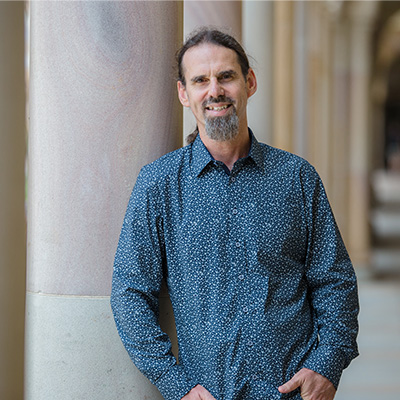
name: Morgan Brigg
institution: School of Political Science and International Studies, The University of Queensland
Morgan Brigg is a specialist in conflict resolution, peacebuilding, governance, development and innovative approaches to cross-cultural relations and the politics of knowledge s research interests include exchange between Western and Indigenous political philosophies and sociolegal orders in conflict resolution, peacebuilding, governance, and international development. He worked in conflict resolution prior to his academic career, and he continues to practice as a nationally accredited mediator. His books include The New Politics of Conflict Resolution: Responding to Difference, and his academic writing has been published in Cooperation and Conflict, Journal of Intervention and Statebuilding, Social and Legal Studies, and Review of International Studies.
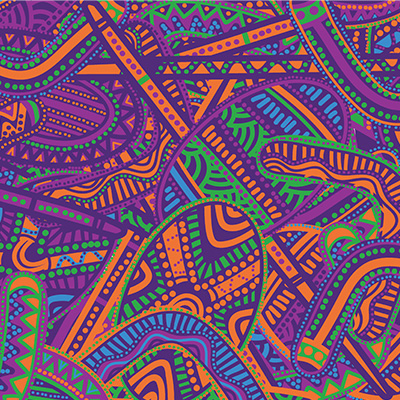
name: Deline Briscoe
institution: School of Music, The University of Queensland
Deline Briscoe is a Yalanji woman of song from the Daintree Region of Far North Queensland. Her roots planted deep in Yalanji culture and Gospel vocals, Deline combines the two worlds in her 2018 Album Wawu. Deline’s career spans over two decades with some of Australia’s most celebrated vocalists including Archie Roach, Lou Bennett, Paul Kelly, Shane Howard, Emma Donovan, Airileke, Andrea Keller, Iain Grandage and has toured the world with two vocally exquisite ensembles, Black Arm Band and Mission Songs Project. Deline tells her stories of love, hope and loss, reaching into audiences’ hearts in the spirit of truth telling and healing. As an Artistic Director, Deline skilfully combines a multi layered storytelling style that is presented in the well-crafted shows including Blaktivism (Arts Centre Melbourne 2021 – 2024), Singing Up Country (Sunshine Coast Chamber Music Festival 2022 – 2024, with Elder Aunty Helena Gulash, A Heartfelt Tribute to Uncle Archie Roach (Bluesfest 2023), Jalbu Muna (Vivid 2023), and Guy – Kuiyam (CIAF 2018).
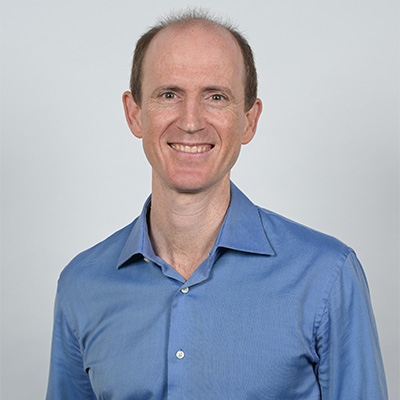
name: Andrew Burton-Jones
institution: UQ Business School, The University of Queensland
Andrew Burton-Jones is a Professor of Business Information Systems at The University of Queensland. He completed his doctorate in Georgia State University and he served on the faculty of the University of British Columbia before returning to UQ. Much of his research and teaching activities focus on the digital transformation of healthcare.
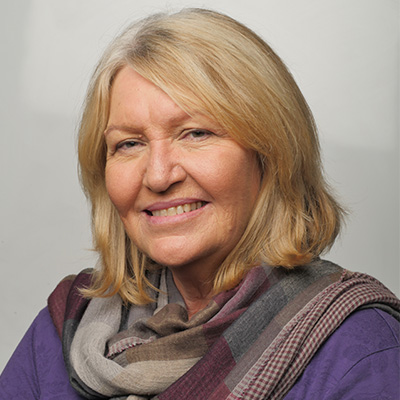
name: Sally Butler
institution: School of Communication and Arts, The University of Queensland
Sally Butler is Associate Professor of Art History in UQ’s School of Communication and Arts, and was the inaugural Program Convenor of the Bachelor of Advanced Humanities (Honours) in the Faculty of Humanities and Social Sciences (2017-2019) at The University of Queensland. Her teaching experience has covered subject areas including Australia Pacific Indigenous Arts, Studies in Photography, Looking at Art (foundation art history course), Curating, and Contemporary Asia Pacific Art, as well as an interdisciplinary course offered to Advanced Humanities and Advanced Sciences students. Her research areas include Australian contemporary art, cross-cultural approaches to art, contemporary Indigenous arts of the Australia Pacific, and art & cultural tourism. Sally is a freelance art curator and writer and has held editorial roles for the Australia New Zealand Journal of Art and Australian Art Collector magazine. Sally’s curated exhibitions include Our Way, Contemporary Aboriginal Art from Lockhart River (2007-8), an international touring exhibition and accompanying UQP book; and Before Time Today, Reinventing Tradition in Aurukun Aboriginal Art (2010) and accompanying UQP book (the latter exhibition featured as a cameo inclusion in Hans Belting’s 2012 Global Contemporary exhibition in Germany). The field school courses convened by Sally were offered during the period 2005-2024.
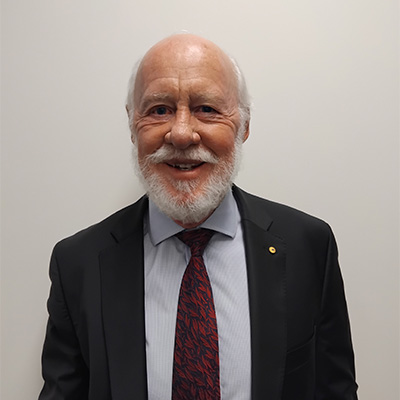
name: Victor Callan
institution: UQ Business School, The University of Queensland
Victor Callan AM teaches and researches at the UQ Business School. Professor Callan’s major focus is upon the role of leaders in organisations, especially around leading change, promoting innovation and building high performance teams. Currently, he is a Chief Investigator on an Australian Research Council (ARC) Linkage Grant, with the industry partners of the World Wild Fund for Nature and Mimal Land Management Aboriginal Corporation, titled “Amplifying leadership and voices of Indigenous women environmental rangers.” Professor Callan has consulted internationally for Governments and industry in numerous countries, including Indonesia, Brunei, Malaysia, Papua New Guinea, New Zealand and a number of African nations.
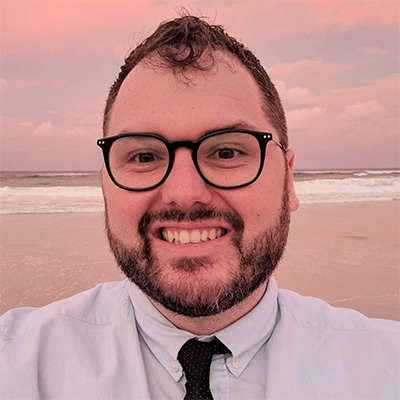
name: Gabriel Churchill
institution: UQ College
Gabriel Churchill is a non-Indigenous man who lives and works on Jagera and Turrbal lands. Gabe grew up in and around Grafton, New South Wales on Bundjalung and Gumbaynggirr Country. His parents are from regional Victoria and he was the first in his family to graduate from university. His teaching career started in 2008, first in Japan and then in Australia. Since 2018, Gabe has specialised in tertiary preparation and has co-developed and taught courses in Academic English, Research, and Humanities and Social Sciences (HASS). Gabe is the course coordinator for Academic English at UQ College.
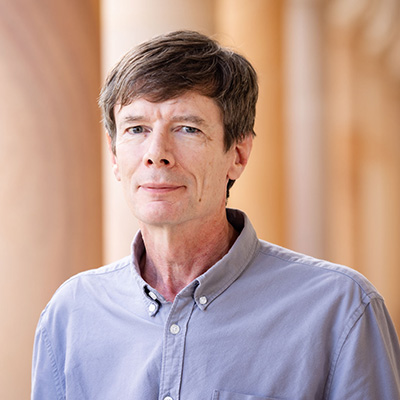
name: Denis Collins
institution: School of Music, The University of Queensland
Denis Collins is Associate Professor of Musicology and Deputy Head of the School of Music at The University of Queensland. He teaches courses in music history and musicianship, and his research focuses on counterpoint in late medieval and early modern European music. His work has been supported by two Australian Research Council Discovery Projects, and he has published books, articles and chapters in Australian and overseas journals and presses. He was an Artistic Director for an album called “A thousand beautiful and graceful inventions: The glorious age of medieval and renaissance canons”, released by Move Records in 2024. Together with Katelyn Barney, his project on Indigenising the tertiary music curriculum was supported by a grant from the Musicological Society of Australia’s Special Funding Scheme in 2023. Denis is the current Editor of the journal Musicology Australia.
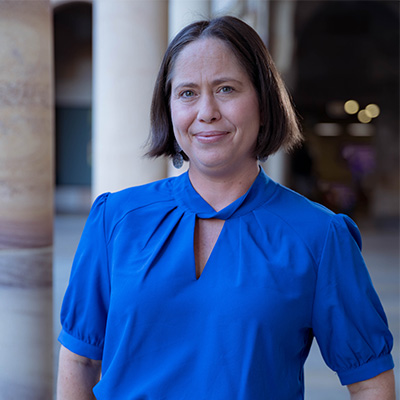
name: Samantha Cooms
institution: UQ Business School, The University of Queensland
Samantha Cooms is a Noonuccal woman of the Quandamooka people and a Senior Lecturer in Management at The UQ Business School. Her work focuses on Indigenising curriculum, embedding Indigenous knowledge systems into business education, and transforming learning spaces through relational and decolonial pedagogy. With a disciplinary background spanning management, Indigenous studies, and disability research, Samantha’s scholarship is grounded in Indigenous methodologies, relational accountability, and ontological frameworks that centre Country, community, and care. She plays a leading role in curriculum reform across undergraduate and postgraduate programs, and co-leads the Indigenising the Curriculum Community of Practice within her faculty. Her approach to curriculum design and delivery emphasises Indigenous self-determination, cultural safety, and the importance of embedding Indigenous governance into institutional processes. Samantha also contributes to national and international dialogues on Indigenous business and leadership education, and mentors staff and students in developing culturally responsive teaching practices. As a single mother and carer of children with disabilities, Samantha’s lived experiences inform her deep commitment to educational justice and inclusive practice. Her teaching and research work to uphold Indigenous sovereignty and create spaces where Indigenous worldviews are not only included, but lead.
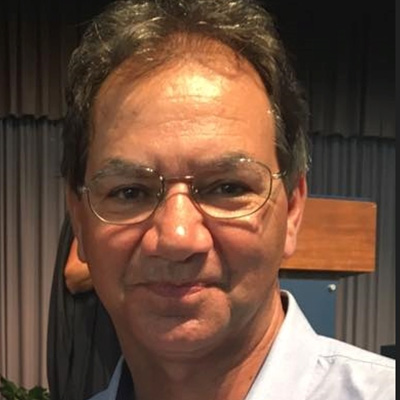
name: Desmond Crump
institution: School of Languages and Cultures, The University of Queensland
Desmond Crump’s family and cultural links are from South-West Queensland, which is the top end of the Gamilaroi Nation – he has an extensive background in education and community language revival. Through his consultancy work, Desmond supports community language revival in Queensland school-communities, particularly in the Darling Downs and Southwest regions. Currently Desmond is employed as the Industry Fellow (Indigenous Languages) for The University of Queensland support activities under the UQ Indigenous Languages Strategy. Desmond is also a member of the Office of the Arts National Directions Group for the International Decade of Indigenous Languages and the AIATSIS Languages Advisory Committee.
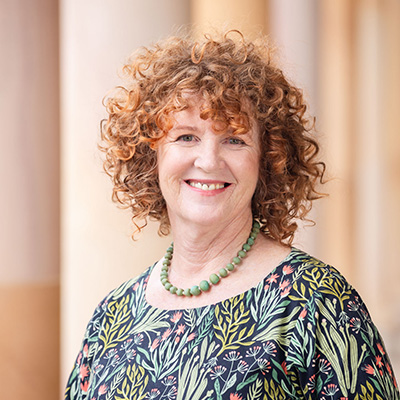
name: Samantha Disbray
institution: School of Languages and Cultures, The University of Queensland
Samantha Disbray is a non-Indigenous migrant settler, living and working on the unceded land of the Yagera and Turrbal people. As Senior Lecturer in Endangered Languages at The University of Queensland she co-convenes and teaches in the Indigenous Language Revitalisation program. Offered for the first time in 2024, and the first of its kind nationally, the program is a rich space for Indigenous students to study, reclaim and reinvigorate their languages and language practices. local, national and international reports relating to Indigenous languages. Art-based language revitalization and maintenance collaborations take centre stage in Samantha’s recent research, with the Warumungu reclamation project and multi-modal exhibition Ankkinyi Apparr, Ankkinyi Mangurr (Our Language, Our Designs) (2015-2020), and the documentation and celebration of Pintupi-Luritja illustrated literature in the Wangka Walytja exhibition, travelling nationally.
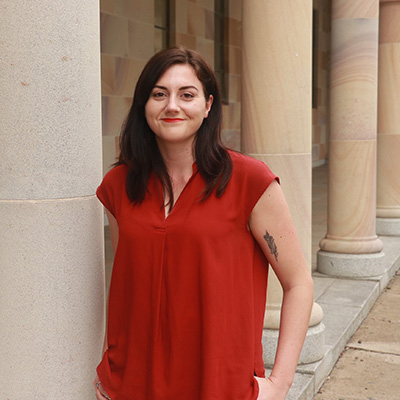
name: Paige Donaghy
institution: The University of Melbourne
Paige Donaghy is an early career historian, currently based at The University of Melbourne. Paige taught in History and Advanced Humanities at The University of Queensland for three years and now lives and works on the lands of the Wurundjeri people of the Kulin Nation, in Naarm. She acknowledges the sovereignty of all First Nations people across so-called Australia and pays respects to the deep traditions of teaching and learning taking place for thousands of years across these lands.
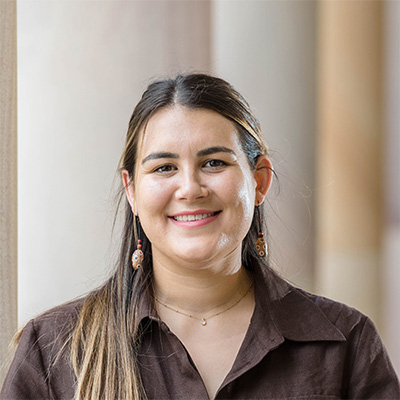
name: Louise Ferris
institution: Institute for Teaching and Learning Innovation, The University of Queensland
Louise Ferris (formerly Crowe) is a proud Wangaaypuwan Ngiyampaa and Wiradjuri woman with ties to the Callen and Shipp family groups. Her ancestral Country lies amongst the Bunggan (Bogan) and Wambuul (Macquarie) rivers of central western NSW. She now resides on Ningy Ningy Country, the traditional lands of the Turbal and Gubbi Gubbi peoples. As an Indigenous Learning Designer at the Institute for Teaching and Learning Innovation at The University of Queensland, Louise leads university-wide strategies for Indigenising Curriculum, supporting staff across UQ to embed Aboriginal and Torres Strait Islander knowledges and perspectives into teaching and learning. With in-depth and extensive experience in the Northern Territory’s Department of Education, she is dedicated to enhancing education quality and fostering culturally safe learning environments that support the future success and learning of our young people.
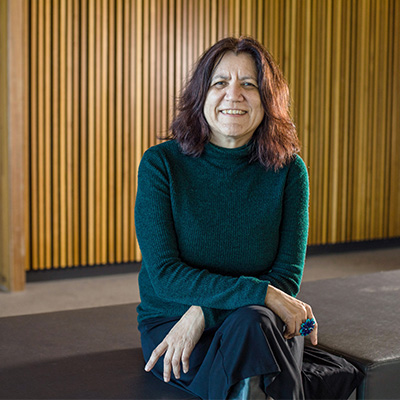
name: Carroll Go-Sam
institution: School of Architecture, Design and Planning, The University of Queensland
Carroll Go-Sam is Dyirbal gumbilbara bama of Ravenshoe, North Queensland. She is an architecture graduate with Bachelor of Architecture (Hons) at UQ in 1997. Carroll is an honorary fellow of the Australian Institute of Architects (AIA) and is currently a senior lecturer in the School of Architecture, Design and Planning at The University of Queensland. She is engaged in teaching, research and consultation primarily about Indigeneity in architecture in civic spaces and social housing. Carroll along with co-author Kelly Greenop co-led the Gununa Futures research project (2022-2024) and UQ’s Campuses on Countries Aboriginal and Torres Strait Islander Engagement and Design Framework (2020-21). The latter guides how new buildings at UQ should account for their relationship to Indigenous Country, staff, students and community.
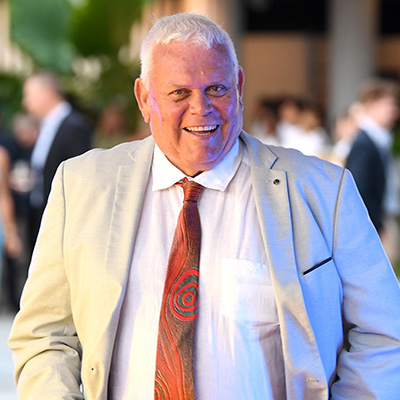
name: Uncle John Graham
institution: Institute for Teaching and Learning Innovation, The University of Queensland
John Graham is a Traditional Custodian of the Gold Coast region, a Kombumerri man, a saltwater man of the Gold Coast part of the wider Yugambeh Language Group. He also has cultural links with the Minjungbal and Wakka Wakka peoples. John worked at Griffith University for over 20 years, initially for 5 years at the College of Art in the Bachelor of Contemporary Australian Indigenous Art and as the Senior Learning Assistance Officer with the GUMURRII Unit for 16 years. He is a current member of the Griffith University Elders and First Peoples Knowledge Holders Advisory Board. He was appointed as the Bond Elder in January 2022 under the direction of the PVC Indigenous, Keitha Dunstan and works across the University in a diversity of strategic roles. John also worked at The University of Queensland for 3.5 years at the Aboriginal and Torres Strait Islander Studies Unit and the Institution for Learning and Teaching Innovation.
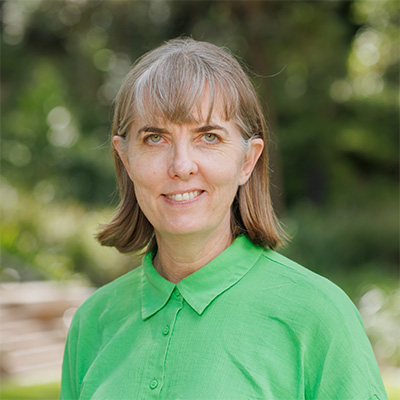
name: Kelly Greenop
institution: School of Architecture, Design and Planning, The University of Queensland
Kelly Greenop is an Associate Professor at The University of Queensland’s School of Architecture, Design and Planning. Her research is in First Nations place and architecture and Digital Cultural Heritage. She is co-author of Campuses on Countries, The University of Queensland Aboriginal and Torres Strait Islander Design Framework, with Carroll Go-Sam, and works with First Nations communities on appropriate design. Kelly is an award-winning university teacher and is a member of the Architects Accreditation Council of Australia panel overseeing standards in Architecture education across Australia. Her passion is teaching and research that helps to create a world with a better fit between human cultures and the architectures they inhabit.
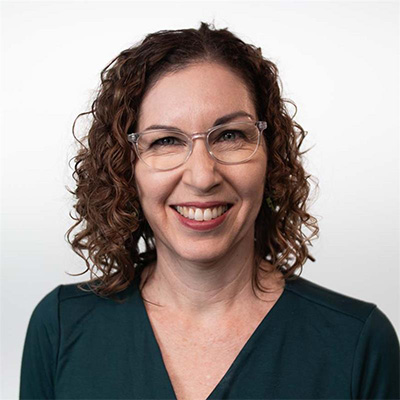
name: Tanya Henry
institution: Institute for Teaching and Learning Innovation, The University of Queensland
Tanya Henry is the Strategic Lead for Assessment Transformation at The University of Queensland, and specialises in programmatic assessment and curriculum design. She is passionate about high-quality and inclusive education to enhance the quality of educational practice and student experience. Tanya is a Master’s-qualified educational leader with over a decade of experience in higher education.
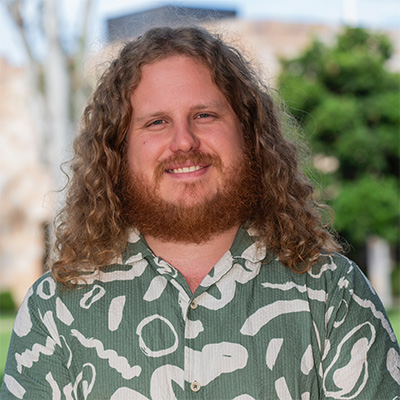
name: Coen Hird
institution: School of the Environment, The University of Queensland
Coen Hird is a trawlwoolway pakana related to north-east Lutruwita (Tasmania) (Hearps, Briggs family). Coen is of palawa and European descent. Coen grew up across so-called Australia including on Lutruwita, Woiworrung and Gubbi Gubbi Country, and now lives on Yagara lands south of Magandjin (Brisbane). Coen did his bachelor’s degree and PhD at The University of Queensland (UQ), focusing on the ecology and physiology of amphibians in a changing climate. Coen now researches and teaches at the interface of Western and Indigenous sciences, with broad interests in Indigenous epistemologies, ecophysiology and conservation biology. Coen is pursuing an anti-colonial research agenda that centres Indigenous priorities in scientific research. This approach stems from environmental rights-based discourse, better engagement with Indigenous peoples, and developing understanding and respect around Indigenous knowledges and Indigenous sovereignty within the sciences.
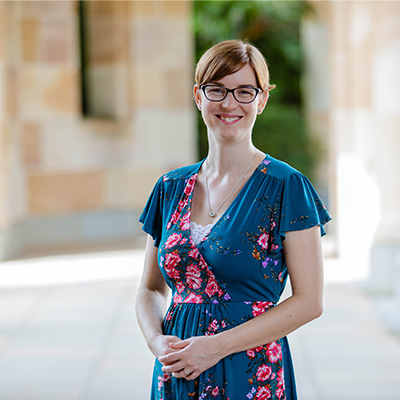
name: Gemma Irving
institution: UQ Business School, The University of Queensland
Gemma Irving is a non-Indigenous Senior Lecturer at The UQ Business School. She coordinates and teaches one of the university’s largest undergraduate courses—an introductory management subject with enrolments reaching up to 1,000 students each semester. Gemma is committed to fostering student engagement by helping learners build meaningful connections with each other, the UQ campus, and their own curiosity. Her teaching practice incorporates Indigenous ways of knowing, being, and doing, inviting students to reflect on management theory through experiential activities such as scavenger hunts, simulations, and critical analysis of current events. Gemma’s research explores the interplay between organisational space, hybrid work, and professional learning. She investigates how physical and digital workspaces—including open-plan offices, healthcare buildings, and hybrid work arrangements—shape the experiences of professionals, employees, clients, and patients. Her work is particularly concerned with the unintended consequences of workspace design and how these can be addressed to support wellbeing, collaboration, and learning. Gemma is particularly interested in place-based and relational approaches that centre the lived experiences of space users.
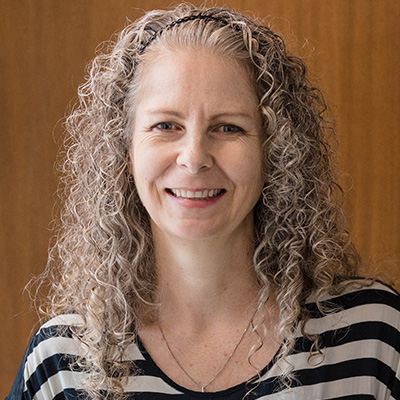
name: Ree Jordan
institution: UQ Business School, The University of Queensland
Ree Jordan has family ties to the Barunggam people of the Western Downs region of Queensland. Ree is currently a Senior Lecturer in Leadership and Management at The UQ Business School (UQBS). Her research focusses on harnessing the benefits of ‘maverickism’ (beneficial non-conformity) for organisational transformation, as well as Indigenous models of leadership and entrepreneurship. Ree has over 20 years professional experience as a leadership and organisational change consultant, developing, coaching, and mentoring senior leaders within government, universities and industry, across Queensland, the Northern Territory and Western Australia.
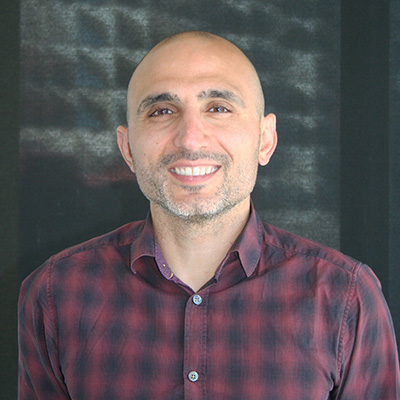
name: Stan Karanasios
institution: UQ Business School, The University of Queensland
Stan Karanasios is a Professor in Information Systems within the Business Information Systems discipline at The UQ Business School. Over the last ten years, he has pursued a program of research examining how organisations use, adapt, and navigate new digital technologies. His work has been published in leading information systems journals. These include more than 15 journals in the Senior Scholars Basket of Journals, such as the Journal of the Association for Information Systems, Information Systems Journal, European Journal of Information Systems, and MIS Quarterly. He holds several editorial roles at prominent information systems journals. In addition to academic publications, he has authored reports for government and organisations, and his research has been featured in The Conversation and other news and media outlets.
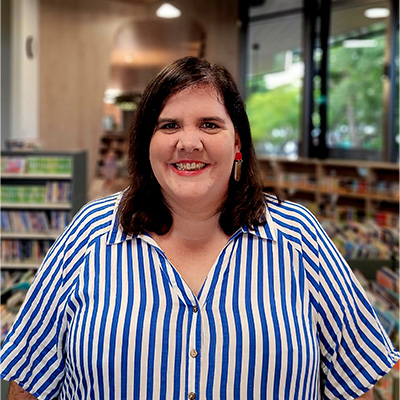
name: Anna Lagos
institution: UQ Library, The University of Queensland
Anna Lagos is the Director, Library Services and Technology at UQ Library. Anna lives, and spent her childhood, on the lands of the Turrbal and Jagera peoples. While she has always loved libraries and learning, she acknowledges that this has occurred largely through colonial spaces and from Eurocentric traditions. She is committed to making libraries welcoming and safe spaces for all, which includes respecting and elevating Aboriginal and Torres Strait Islander knowledges.
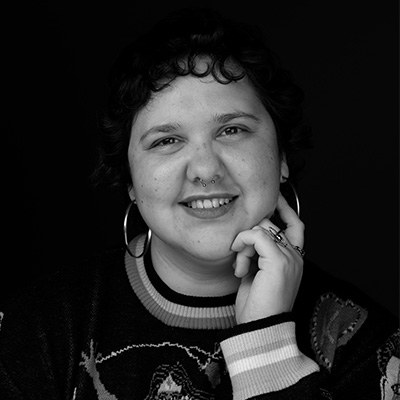
name: Raelee Lancaster
institution: UQ Library, The University of Queensland
Raelee Lancaster is Principal Advisor, Aboriginal and Torres Strait Islander Services and Collections, UQ Library. Raelee is a Wiradjuri yinna (woman), with ancestral ties to the Biripi peoples and familial ties to the G/Kamilaraay peoples, who grew up on Awabakal lands in Newcastle, New South Wales. Raelee holds a Master of Information Science and their career crosses library services and heritage collections.
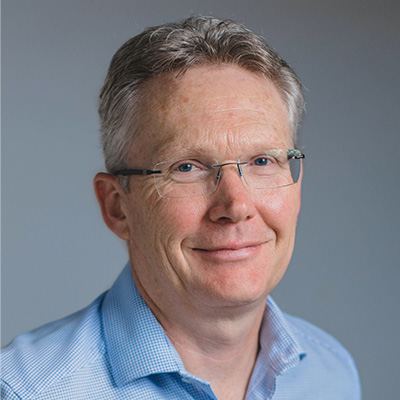
name: Paul Lant
institution: School of Chemical Engineering, The University of Queensland
Paul Lant was born and grew up in Newcastle upon Tyne in the north-east of England. This is a proud working class region which had a long history of coal mining and heavy industry until the 1980s. Paul studied chemical engineering at Newcastle University prior to moving to Australia in 1991. He works as a Professor in the School of Chemical Engineering at The University of Queensland. He has a long history of teaching and research at UQ, and he has held a variety of roles. He has a history of successful start-up ventures across his portfolio of research, teaching and commercialisation. He has led many new teaching initiatives and been a key player in establishing UQ Chemical Engineering as a world leader in chemical engineering education innovation. Paul co-led the development of the course ‘Humanitarian Engineering’ at UQ, and has co-taught it for several years.
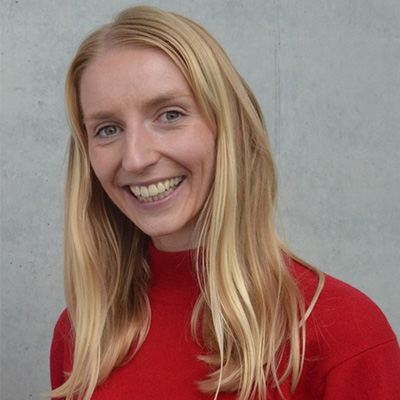
name: Kat Lee
institution: Library, Southern Cross University
Kat Lee is currently the Copyright and Open Licensing Librarian, at Southern Cross University Library and was previously the Learning and Research Services Librarian, UQ Library. Kat grew up on and lives in Meanjin, on the lands of the Turrbal and Jagera peoples. She currently works at the Gold Coast on the lands of the Yugambeh peoples. As a librarian, Kat is dedicated to self-educating on issues relating to First Nations people’s engagement with libraries and is passionate about supporting practices to promote greater prominence of Indigenous voices in library collections and educational materials.
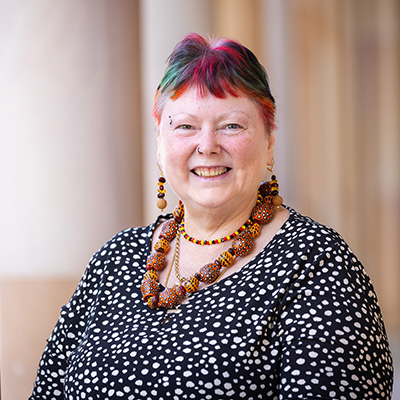
name: Sharlene Leroy-Dyer
institution: UQ Business School, The University of Queensland
Sharlene Leroy-Dyer is a Saltwater woman, from the Garigal, Awabakal, Darug and Wiradyuri nations. She is a full-time academic in The UQ Business School where she is an Associate Professor and the Director of the Indigenous Business Hub. Sharlene was the first Aboriginal person to be awarded a PhD in Business from the University of Newcastle. Sharlene has extensive experience as an equity practitioner, having worked for over 40 years in industry and academia. Sharlene has been on several ministerial advisory boards and her work has been cited in Ministerial papers and in Bills introduced into Parliament. Sharlene’s current research areas include: Closing the Gap on Aboriginal and Torres Strait Islander disadvantage in Education and Employment, Labour Market disadvantage of Aboriginal and Torres Strait Islander peoples, Aboriginal and Torres Strait Islander Employment strategies, Managing Diversity in Organisations, Employment Relations and the importance of unions.
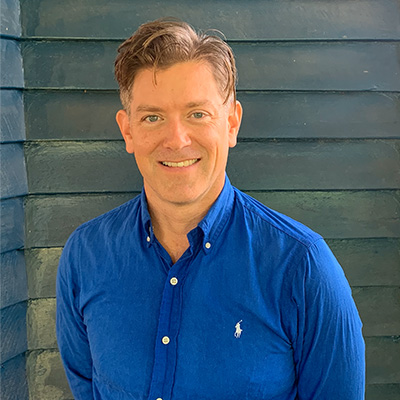
name: Richard Martin
institution: School of Social Science, The University of Queensland
Richard Martin is a Senior Lecturer in Anthropology at The University of Queensland. He has authored numerous reports about Aboriginal native title claims and given expert evidence in the Federal Court of Australia. He has also undertaken expert review of anthropological materials for respondent parties to native title claims. He has published a range of scholarly articles about native title, cultural heritage, and Australian history and culture, and is the author of The Gulf Country: The story of people and place in outback Queensland (Allen & Unwin, 2019). He holds a PhD from the University of Western Australia and a Bachelor of Arts/Education from the University of New South Wales (UNSW).
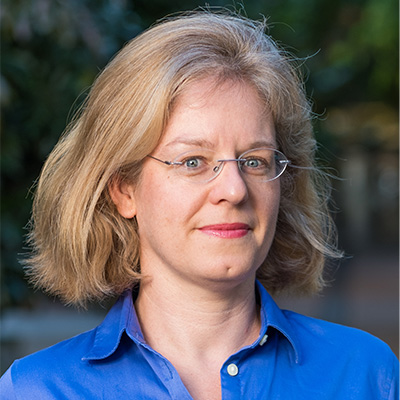
name: Sabine Matook
institution: UQ Business School, The University of Queensland
Sabine Matook is a Professor in Information Systems at the UQ Business School, The University of Queensland. She is a digital technology scholar with an interest in systems development and social media. Dr Matook is on the editorial boards of various leading information systems journals, including MIS Quarterly (MISQ) and Journal of Management Information Systems (JMIS). Currently, she is the Secretary of the Council of the Association for Information Systems (AIS), the professional body of more than 5,500 members from the Information Systems field. Her work has appeared repeatedly in Financial Times FT 50-ranked journals and other A* ranked outlets, including MISQ, JMIS, EJIS, ISJ and others. She is a Senior Research Fellow with the Weizenbaum Institute for the Networked Society – The German Internet Institute. Dr Matook is also a passionate educator and a champion for work-integrated learning in higher education. She received a 2024 Australian National Teaching Award citation and is a Senior Fellow of Advance HE, an advanced level of professional standing.
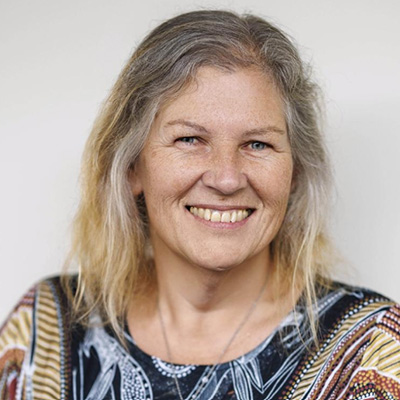
name: Karina Maxwell
institution: School of Nursing, Midwifery and Social Work, The University of Queensland
Karina Maxwell is a proud Ngugi woman from Quandamooka, passionate social worker, activist, and advocate with a strong social justice focus. With over 15 years of frontline experience, she has dedicated her career to working with Aboriginal and Torres Strait Islander families at risk of entering child protection, providing intensive family support. Through her extensive work, Karina recognised the need for better support, options, and opportunities for families. This realisation led her to start a PhD at The University of Queensland in 2024, focusing on peer parent and family advocacy for Aboriginal and Torres Strait Islander families at risk of or involved with child protection. Committed to creating positive change, Karina strives to ensure Aboriginal and Torres Strait Islander families have a voice and access to culturally responsive services to empower and promote social justice. Her work continues to inspire efforts toward systemic change in child protection and family support. Additionally, Karina has been part of the teaching team for INDH2107/7107 Working with Aboriginal and Torres Strait Islander peoples, families and communities for the last 8 years at UQ.
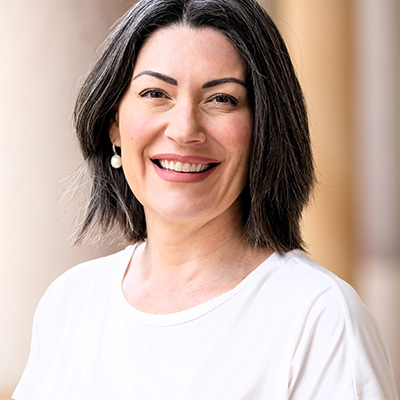
name: Katherine McLay
institution: School of Education, The University of Queensland
Katherine McLay is a Senior Lecturer in the School of Education. She coordinates the English Curriculum courses within the Bachelor of Education (Secondary) and Master of Teaching (Secondary) programs and the Honours program within the Bachelor of Education (Primary). She co-chairs the School of Education’s Indigenous Engagement Committee alongside Dr Danielle Armour. Katherine is sociocultural scholar whose research interests include literacy, dialogic pedagogy, teacher professional learning, and technology enhanced learning.

name: Jen McLeod
institution: UQ College
Jen McLeod is from the land that sits beneath the elder mountain Ruapehu.
Ko Ruapehu te maunga
Ruapehu is the mountain
Ko Whangaehu te awa
Ko Ngati Rangi te iwi.
The river that runs from the crater lake of the mountain is Whangaehu.
The tribal connection is Ngati Rangi (Maori).
Jen has taught in Early Childhood, Early Years, Primary and Tertiary sectors of education in New Zealand. Of late, at UQ College under the role of Course Coordinator for Behavioural Science, Humanities and Social Sciences and Research.
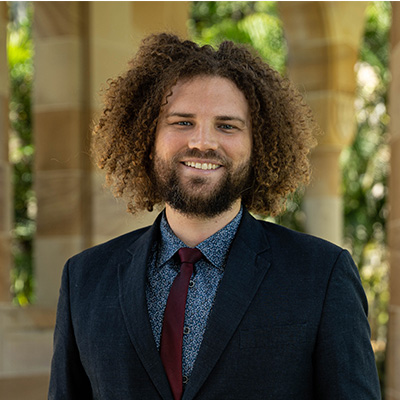
name: Sean Mitchell
institution: UQ Business School, The University of Queensland
Sean Mitchell is a non-Indigenous Learning Designer at The UQ Business School. He currently lives and works on Turrbal and Jaggera Country in Brisbane, Australia. Sean’s positionality as a non-Indigenous professional informs his commitment to supporting Indigenous voices and perspectives in business education. Drawing on a background in curriculum design, innovation, and digital learning, Sean collaborates with Indigenous and non-Indigenous colleagues to create culturally responsive and engaging learning experiences. Through his practice, Sean aims to foster environments where Aboriginal and Torres Strait Islander ways of knowing, being, and doing are meaningfully embedded in the student experience.
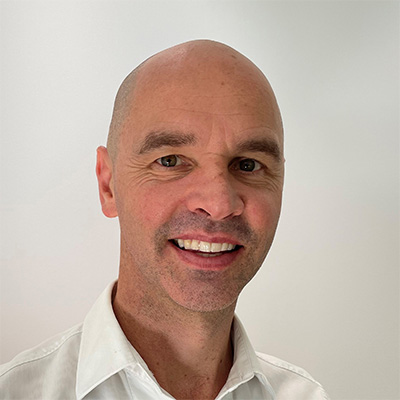
name: Ashley Moor
institution: UQ College, The University of Queensland
Ashley Moor has family connections to Wakka Wakka Country and grew up in Toowoomba, Queensland. Ash commenced teaching in TAFE Tasmania on the Adult Migrant English Program (AMEP) in 2003 before working for the British Council in Santiago, Chile. On his return to Australia in 2008, he taught, coordinated and managed programs in a number of Brisbane colleges before moving into the pathways and enabling education space. In 2021, Ash received the ACEL Research in Educational Leadership and Management award. As Academic Manager at UQ College, Ash has led initiatives towards Indigenising curriculum in the Foundation and Tertiary Preparation Programs.
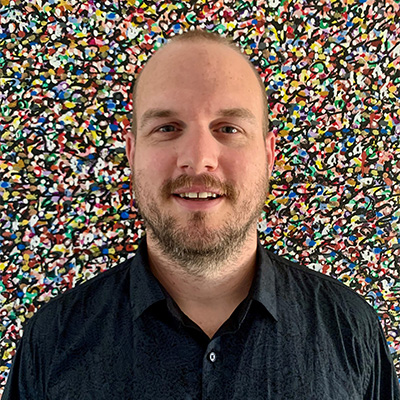
name: Benjamin Mos
institution: School of the Environment, The University of Queensland
Benjamin Mos is a Murri man of Turrbal, Dutch and English descent and Senior Lecturer at UQ. Ben was born and raised on Gumbaynggirr Country, and now lives on Quandamooka Country, working from the Moreton Bay Research Station on beautiful Minjerribah. Ben undertakes research and teaches about the ways in which we (humans) are altering waterways and oceans through climate change, pollution, and catching too many fish, and how we can solve these problems by entwining Indigenous and international science approaches. Ben is keen to realise an Indigenised curriculum at UQ that recognises and respects Indigenous rights, responsibilities, sovereignty, knowledges, and ways of being and doing to transform the way in which science is done for the benefit of current and future generations.
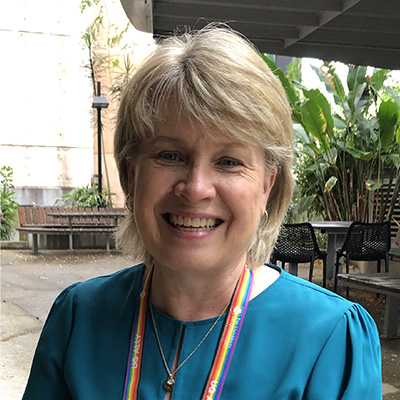
name: Aliisa Mylonas
institution: Faculty of Business, Economics and Law, The University of Queensland
Aliisa Mylonas is a non-Indigenous Senior Education Manager working in the Business, Economics and Law Faculty at The University of Queensland. She feels very fortunate to have grown up and been educated on Turrbal and Jagera Country, Meanjin. Like her parents before her, she has an inherent belief in the potential of education to transform lives. Drawing on her extensive curriculum and assessment expertise, along with her interest and research in enhancing the student experience, she collaborates with educators to design and deliver inclusive and accessible experiences for learners. This dovetails nicely with her doctoral research, where Aliisa is investigating experiences that can assist university educators to adopt inclusive assessment practices valued by students with disability.
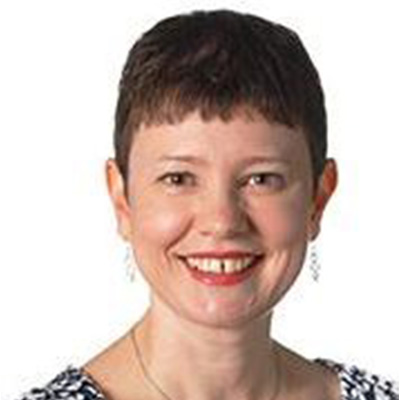
name: Miranda Newell
institution: UQ Library, The University of Queensland
Miranda Newell is a Digital Learning Specialist at UQ Library. Miranda grew up on and continues to live on the lands of the Turrbal and Jagera peoples. She is interested in creating inclusive digital learning content that reflects diverse perspectives and needs, including Aboriginal and Torres Strait Islander knowledges, perspectives and studies, Indigenising curriculum, and Indigenous Cultural and Intellectual Property (ICIP).
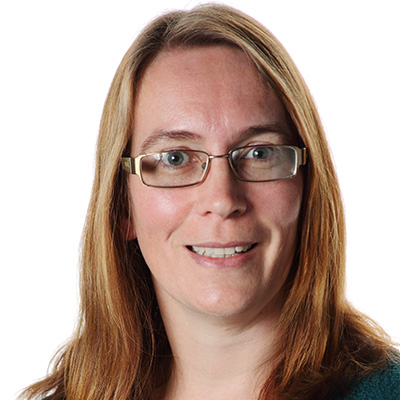
name: Julie Oates
institution: UQ Library, The University of Queensland
Julie Oates is a Senior Manager, UQ Library. Julie was born in England and lived in England, Wales and Scotland during her early adulthood. She made her home in Meanjin (Brisbane) 20 years ago and is privileged to live on the lands of the Turrbal and Jagera peoples. She is committed to being an ally and supporter of Aboriginal and Torres Strait Islander colleagues and students and does this by encouraging and facilitating UQ Library staff development of cultural competency and working with her team to actively support Indigenising the curriculum.
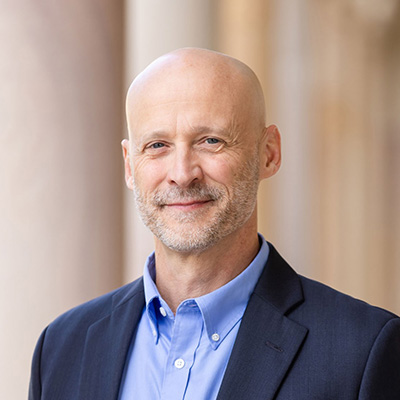
name: Richard O’Quinn
institution: UQ Business School, The University of Queensland
Richard O’Quinn teaches courses on leadership, strategic decision-making, and strategic human resource management in the graduate, MBA, Executive Education, and online education programs at The UQ Business School. Richard’s research interests include leadership, strategic decision-making, and organization studies using practice and process perspectives. His interest in these fields stems from his previous 23-year career as a commissioned officer in the US Army Special Operations Forces. Richard routinely advises leaders and organizations in leadership, strategy, and organization improvement.

name: Kia Owens
institution: UQ Library, The University of Queensland
Kia Owens is a Library Services Officer, UQ Library. Kia grew up on the lands of the Yugambeh/Kombumerri peoples. They now live in Meanjin on the lands of the Turrbal and Jagera peoples. Kia has always had an interest in making places more inclusive for everyone. They are committed to dismantling Eurocentric, heteronormative traditions which prevent diverse people from thriving in society. Re-embedding Aboriginal and Torres Strait Islander knowledges and perspectives in stolen land is a big part of this commitment, which incorporates Indigenising the curriculum.
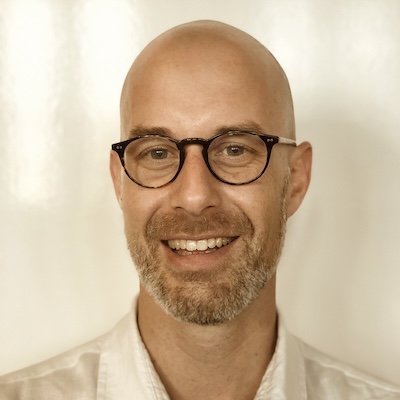
name: Thomas Palmer
institution: UQ Library, The University of Queensland
Thomas Palmer is a Manager, UQ Library. Thomas lives in Meanjin (Brisbane) and spent his childhood in Bell County, Texas, on the lands of several peoples, including the Tonkawas, Lipan Apaches, Wacos, Anadarkos, Kiowas and Comanches. Thomas is interested in how libraries and the open education movement can support Indigenising the curriculum.
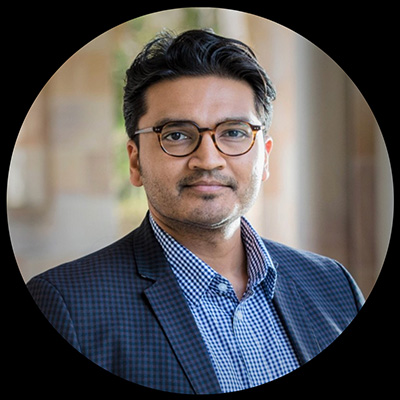
name: Ashil Ranpara
institution: Faculty of Business, Economics and Law, The University of Queensland
Ashil Ranpara is a certified career counsellor and a Work-Integrated Learning professional with over 10 years of experience in the higher education space. He has supported over 1000 students to succeed in their careers, liaising with top companies worldwide and in Australia and has worked as a learning designer for the Aboriginal and Torres Strait Islander Studies Unit at The University of Queensland. He has also worked with remote Indigenous communities in Queensland and Northern Territory in telling stories around rock art research.
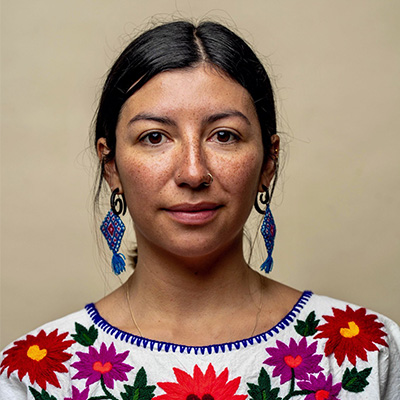
name: Nisa Richy
institution: Aboriginal and Torres Strait Islander Studies Unit and School of Music, The University of Queensland
Nisa Richy (she/her) is an artisan, researcher and arts professional working and living in so-called ‘Australia’, on unceded Aboriginal lands. Coming from a family of mixed heritage with a long history of both forced and chosen migration, she identifies as Crimean Tatar and Southern European on her mother’s side, and Originaria Yucateca, Mexican on her father’s side. Nisa has an academic background in Aboriginal and Torres Strait Islander studies, art history, anthropology and politics. Drawing on both her cultural and academic backgrounds, Nisa’s research and creative practice looks at intercultural collaboration, writing and researching beyond binary thinking, and anti-oppressive methodologies in looking at and creating art.

name: Kirsty Rickett
institution: UQ Library, The University of Queensland
Kirsty Rickett is Senior Librarian, Client Experience, in the Fryer Library, UQ Library. Kirsty lives and works on the lands of the Turrbal and Jagera peoples. From a very young age she has loved books and libraries, valuing the idea of libraries being safe and welcoming places for all. While working in the Fryer Library, she has had the privilege to work with the Aboriginal and Torres Strait Islander Services and Collections team, broadening her understanding of Indigenous perspectives of libraries as cultural institutions, and learning to create a more inclusive sense of place.
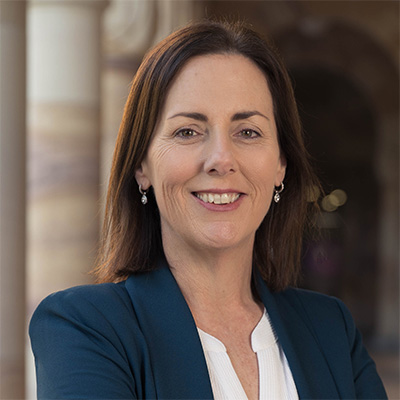
name: Lisa Ruhanen
institution: UQ Business School, The University of Queensland
Lisa Ruhanen is a Professor in Tourism and Deputy Head of the UQ Business School (Graduate Education, Tourism and Marketing) at The University of Queensland. She has undertaken academic and consultancy research projects in Australia and overseas in the areas of Indigenous tourism, sustainable tourism and policy, planning and governance. Lisa has more than 150 academic publications and is co-editor of the book, Indigenous Tourism: Cases from Australia and New Zealand. Lisa is a Senior Fellow of the Higher Education Academy and UN Tourism TedQual Advisory Board member.
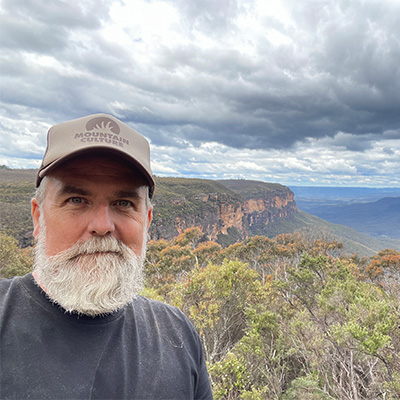
name: Steven Salisbury
institution: School of Biological Sciences, The University of Queensland
Steven W. Salisbury is an Associate Professor in the School of Biological Sciences at The University of Queensland, where he is head of the UQ Dinosaur Lab and Chair of First Nations Engagement. He is also Research Associate at the Carnegie Museum of Natural History, Pittsburgh, Pennsylvania, USA, Associate Editor for the Journal of Vertebrate Paleontology, and a Scientific Board member of the Jurassic Foundation. Steve’s research focuses on the evolution of Gondwanan continental vertebrates, in particular dinosaurs and crocodilians. He is also interested in vertebrate biomechanics and using extant animals to better understand the anatomy, behaviour and evolution of extinct ones. His field-based research takes him to various parts of Queensland, the Kimberley, New Zealand and Antarctica.
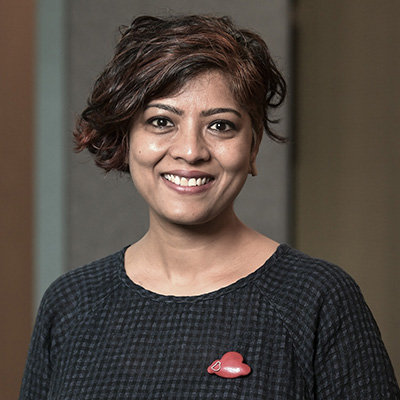
name: Vigya Sharma
institution: Sustainable Minerals Institute and School of Chemical Engineering, The University of Queensland
Vigya Sharma grew up in New Delhi, India, where she trained as an engineer. In the early 2000s, as environmental calls to action picked up pace in developing regions around the world, and the human and ecological costs of technological advancements became clearer, she was drawn to the social sciences. She moved to Australia in 2005 to study a PhD in Sustainability and International Development at the University of Adelaide (Tarndanya) and has called Meanjin home since 2010. Vigya currently works as an Associate Professor at The University of Queensland’s Sustainable Minerals Institute with a joint appointment at the School of Chemical Engineering. She draws on her interdisciplinary background to undertake research that examines how the presence (or absence) of energy and mineral resources impacts long-term development outcomes for governments and communities in resource-rich regions. Vigya also coordinates a first-of-its-kind Faculty of Engineering, Architecture and Information Technology (EAIT) course on ‘Humanitarian Engineering’ offered to engineering students at UQ. She co-developed this course in 2020 with Professor Paul Lant and remains its primary lecturer.
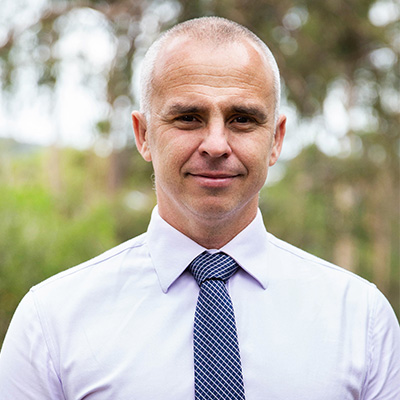
name: Jonathan Staggs
institution: UQ Business School, The University of Queensland
Jonathan Staggs is an entrepreneurship and innovation scholar who has been published in top-tier journals such as the Administrative Science Quarterly, Organization Studies, and the Cambridge Journal of Economics. He is an Associate Director (Teaching and Learning) on The UQ Business School’s Principles for Responsible Management Education (PRME) Committee and an Associate Editor at Management Teaching Review, a journal that aims to provide practical insights, innovative teaching strategies, and resources aimed at improving the effectiveness of management education. Jonathan’s research has ranged from energy, health, artisan entrepreneurial ecosystems, through to family business in the wine industry, with a particular focus on the role of place in innovation processes.
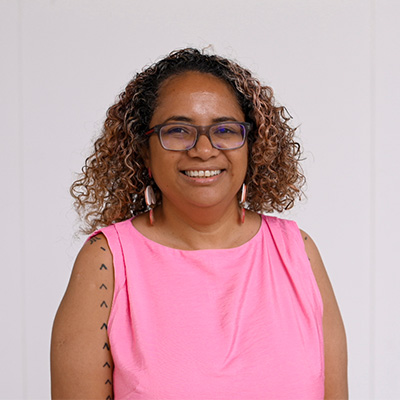
name: Dulcie Stewart
institution: UQ Library, The University of Queensland
Dulcie Stewart is the UQ eSpace Coordinator, UQ Library. Dulcie was born in Suva, Fiji, and now lives on Turrbal and Yuggera Country. She is of Indigenous Fijian (Bua, Tailevu, Rewa, and Kadavu) and colonial-settler heritage. As a multidisciplinary artist whose practice looks at reframing colonial narratives of Indigenous Fijians, Dulcie is committed to the integration of Aboriginal and Torres Strait Islander perspectives into curricula and libraries.
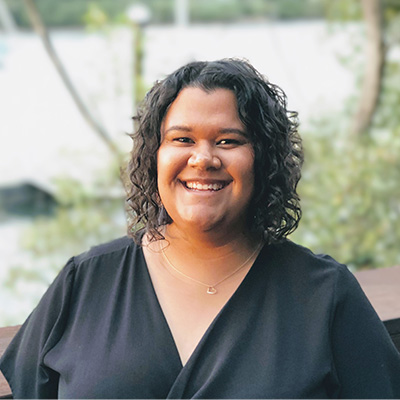
name: Kate Thompson
institution: School of Nursing, Midwifery and Social Work, The University of Queensland
Kate Thomson, a Gooreng Gooreng and Yuggera woman, is a Lecturer in Health and Social Work in the School of Nursing, Midwifery and Social Work at The University of Queensland (UQ). Kate completed a Bachelor of Social Work (Honours) at UQ. After graduating, she worked in an Aboriginal and Torres Strait Islander Community Controlled Organisation (ATSICCO) in a Foster and Kinship Care service. Following this experience, Kate moved into a Senior Practitioner role within the organisation, providing specialist advice and guidance, contributing to the improvement of child and family services within the ATSICCO, ensuring services were delivered to a high standard and in accordance with legislation and practice guidelines. Kate completed her PhD in 2025 and explored how cultural identity and connection is facilitated and maintained for Aboriginal and Torres Strait Islander children in out-of-home care from the perspectives of Aboriginal and Torres Strait Islander carers and stakeholders. Kate has been an active member of the UQ’s Health, Medicine, and Behavioural Sciences Indigenising Curriculum Advisory Committee since its inception in 2021.
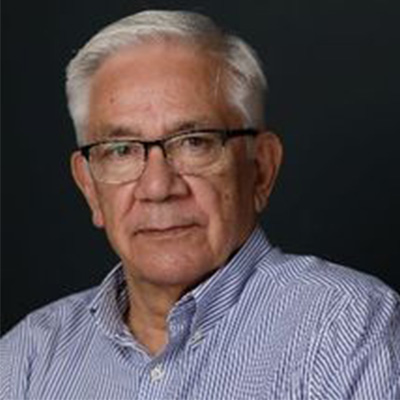
name: Jim Walker
institution: School of the Environment, The University of Queensland
Jim Walker is a Yiman and Goreng Goreng Elder and Lecturer at The University of Queensland. Jim has been advocating for the rights of Indigenous peoples in excess of 20 years both in Australia and internationally. Jim brings a wealth of expertise to the space as: Chair of the Murri Mura Aboriginal Corporation; Board of Advice member of the Queensland Aboriginal and Torres Strait Islander Foundation; Chair of the First Nations Advisory Team for the Cooperative Research Centre for Transformations in Mining Economies; Chair of the Science Advisory Committee and Board Member of Earthwatch Australia; Member of the Science Advisory Committee for the Terrestrial Ecosystems Research Network; Former Manager of the CSIRO’s National Indigenous Engagement Office; and Former Chair of the Indigenous Caucus within the World Intellectual Property Organisation Intergovernmental Committee on the Protection of Intellectual Property, Traditional Knowledge and Cultural Expressions.

